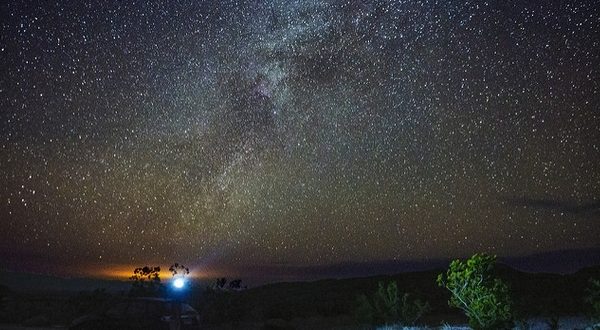[ad_1]
People take trips for myriad reasons.
Some explore the world in order to follow in the footsteps of a historical figure or to peruse a renowned art gallery. Others will go anywhere to watch a big sporting match or to feast on great food and drink.
And some set off for far-flung places to get a view of the stars, though I’m not talking the Hollywood variety. Heavenly bodies can make both the astrophysicist or the everyday traveler smitten with stars.
There are a ton of terrific places on the planet to travel with your telescope.
Some are easy to get to, some—as seen in this fascinating video from the Kavli Foundation—are located at the extreme ends of the world, but all of the following locales feature ideal conditions for viewing the lovely canvas of light above.
Atacama Desert, Chile
This barren swath of land in northern Chile has become a mecca for those who love to stare in wonder at the night sky. It possesses the perfect combination of dry conditions, high elevation and a distinct lack of outside light pollution
You will be spoiled for star-spotting options here. The adventurous can explore the desert at night independently, but organized tours that set off from San Pedro de Atacama are the more popular option.
If you want to delve a little deeper into the world of astrophysics, then you should also consider a visit to the Atacama Large Millimeter/submillimeter Array (ALMA). This collection of antennas spread out across the 16,000-foot-high Chajnantor Plateau specializes in detecting gas clouds in space that may contain the building blocks for planets, galaxies and maybe even extraterrestrial life.
Mackenzie Region, New Zealand
The Mackenzie Region of New Zealand’s scenic South Island is home to Australasia’s only International Dark Sky Reserve, and this patch of inky sky is like nothing else in the region. Here you will be able to spot thousands, (sometimes seemingly millions), of stars with the naked eye and even more with your telescope.
Big Bend National Park, United States
With a country as large as the United States, you are destined to have your pick of pitch-black zones, but the desolation of Texas’ Big Bend National Park might just make it the darkest.
You will regularly be able to spot the Milky Way over the expansive park in far West Texas, with the adjoining Big Bend Ranch State Park offering just as stunning star views. Both are listed as an International Dark Sky Park.
Namibrand Nature Reserve, Namibia
Namibia is another great place on the globe to see stars, as this sparsely populated Southwest African country has a distinct lack of light pollution and countless cloudless nights.
The Namibrand Nature Reserve is Africa’s only Dark Sky Reserve, and here you will find the Namib Desert Environmental Education Trust (NaDEET), which runs educational programs. Overnight guests get the chance to sleep in open-air beds where they can get spectacular views of the night sky without moving their head off the pillow.
Canary Islands
This string of Spanish islands off the coast of Africa is home to Europe’s best stargazing. While you can spot stars all over the Canary Islands with your own scope, the main islands of Tenerife and La Palma are home to two excellent observatories that offer guided tours and up-close views of the galaxy.
[ad_2]You can read more of the news on source
 Travelsmart
Travelsmart



